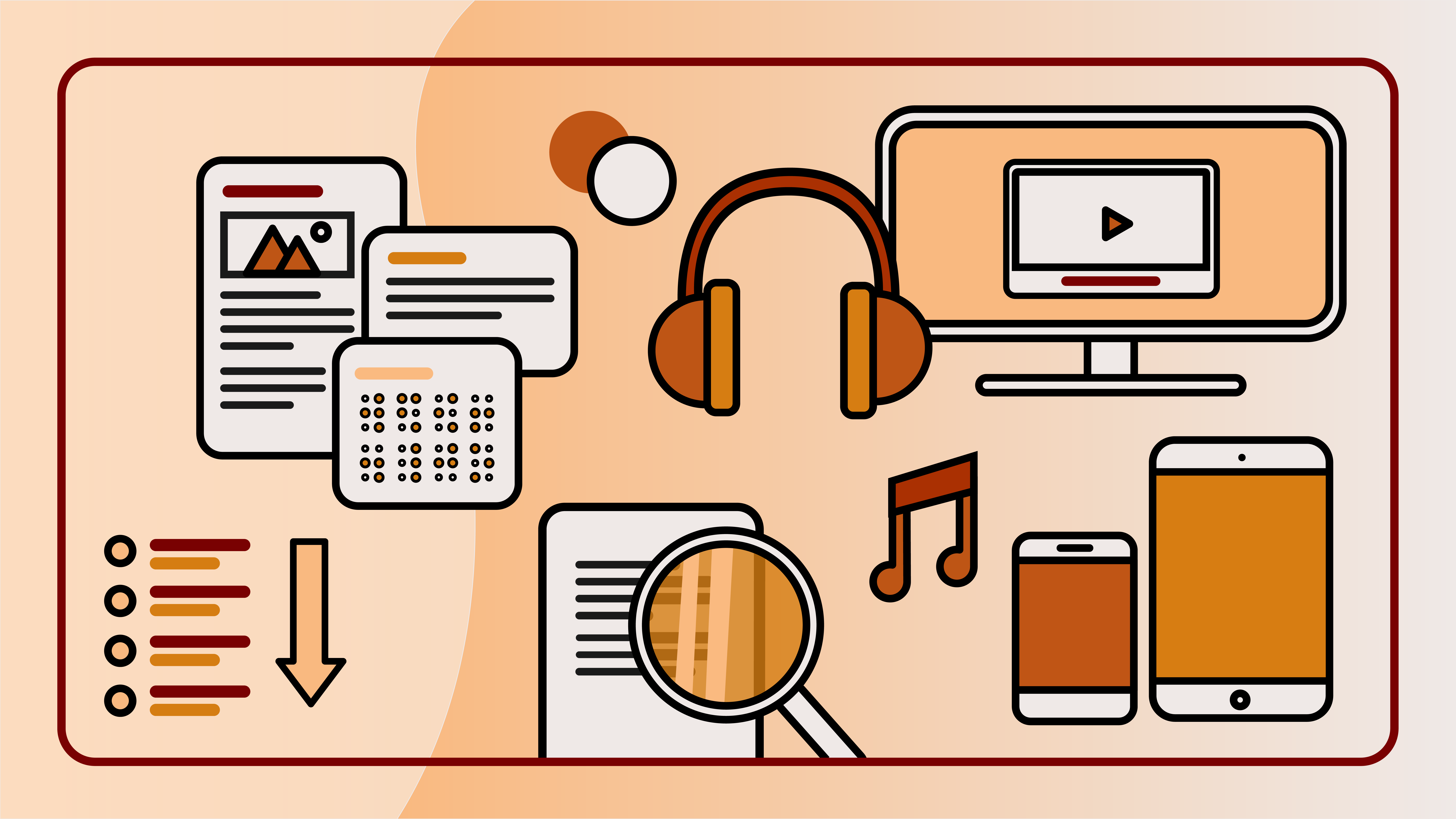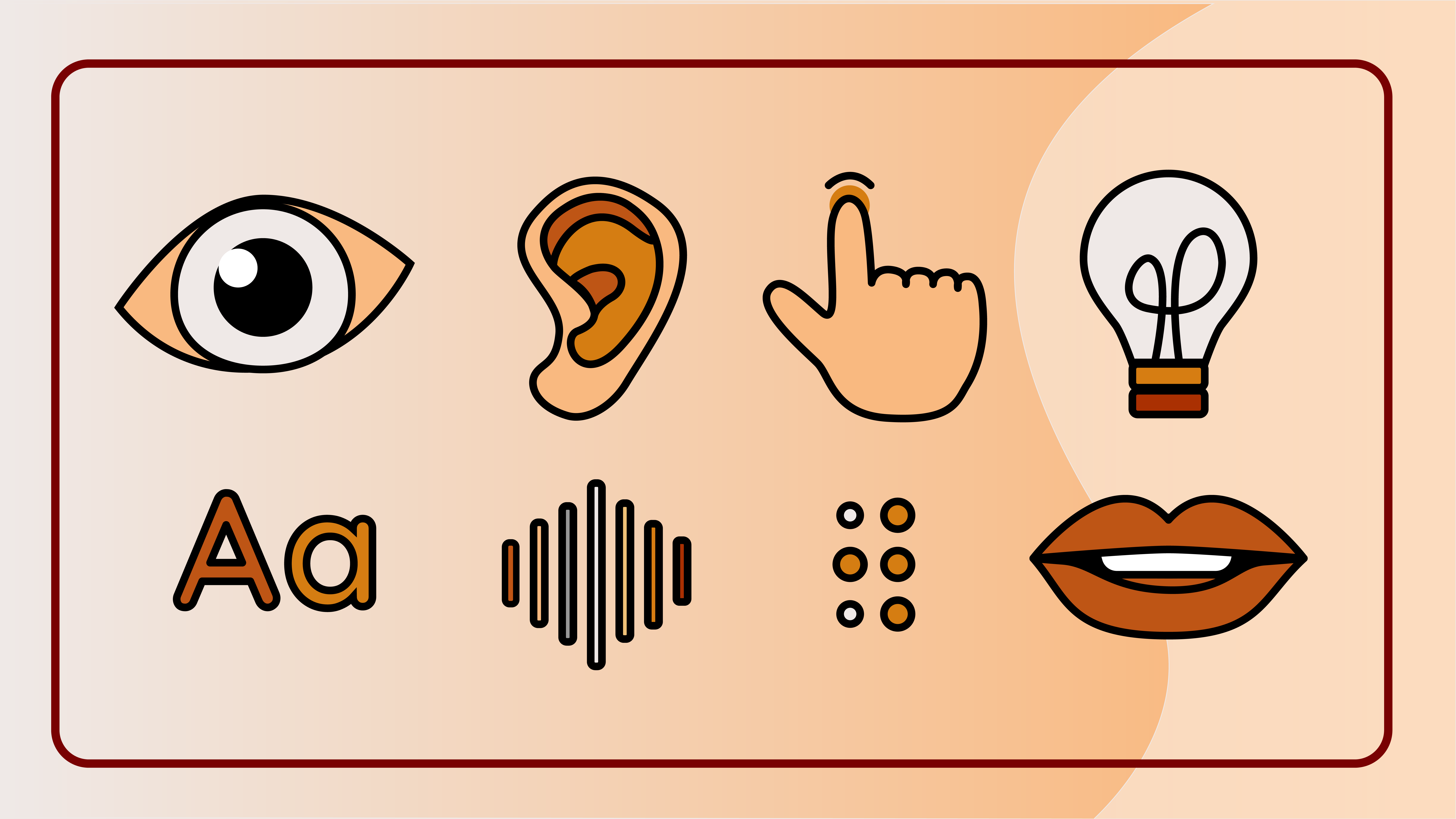Accessible multimedia
Multimedia content (such as videos, audio recordings, and images) that is not accessible can create barriers to accessing and understanding the content for people with disabilities, such as visual or hearing impairments, cognitive disabilities, or mobility impairments.
By making multimedia accessible, you can help ensure that everyone, regardless of their abilities, can access and understand the information presented. Accessible multimedia also helps to promote inclusivity and diversity in the workplace, in education, and in society as a whole.

